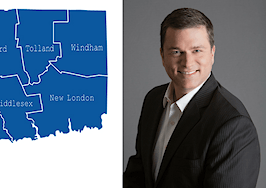- Broker-MLS relations have improved, but brokers want more decision-making power in their MLSs.
SAN FRANCISCO — It’s been nearly four years since a group of dozens of big brokers laid out a long list of grievances against MLSs and threatened the launch of an industry bombshell that would change the role of the MLS.
Since then, that industry bombshell — Upstream — has yet to officially roll out. But how are relations between brokers and MLSs?
That 2013 list of broker complaints from The Realty Alliance (TRA), a network of 69 large real estate brokerages, included several items related to brokers’ belief that some MLSs are overstepping their proper role or not doing their best to help brokers do their jobs.
Examples included not giving brokers data feeds they are entitled to; ignoring National Association of Realtors’ MLS policies; inconsistent data standards across MLSs; revenue share that brokers never see a penny from; too many MLSs; offering products that “level the playing field” and compete with brokers’ offerings; and what TRA called a lack of “authentic and equitable governance” that communicates with brokers and solicits their input.
Today, “we’re in a much better place than we were,” TRA President and CEO Craig Cheatham told attendees at Inman Connect San Francisco last week. (Cheatham delivered the original TRA warning back in 2013 at the Council of Multiple Listing Services’ annual conference.)
He cautioned that his assessment was “kind of like a national weather forecast” in the sense that individual markets were likely to vary, but said, “We’ve moved the needle more toward a positive direction than in 2012 [and] 2013.”

Craig Cheatham
Someday, when non-disclosure agreements expire, he might share what was going behind the scenes at that time, he added, saying, “if you knew what was going on in the broker community in 2012 it would make total sense.” He likened the pent-up frustration brokers let loose in 2013 to a Looney Tunes cartoon in which “the Dragon Lady” opens her mouth and torches Bugs Bunny.
After that memorable CMLS conference, MLS executives went home and talked to their brokers and those conversations have been ongoing, according to Cheatham.
“I think people realize that this is the way to move forward, together,” he said.
How have MLSs gotten better?
Things that are significantly better in brokers’ eyes include data access — particularly brokers getting data they feel they are entitled to receive from MLSs; data quality; data security; and broker-friendly legal counsel. On the latter item, Cheatham said that MLS attorneys were previously pushing terms that were just good for MLSs rather than good for MLSs and brokers.
“People feel that we are more on the same page. I think that [brokers] felt they were screaming into a pillow before and now they are talking to their MLS boards and executives,” Cheatham said.

Denee Evans
CMLS CEO Denee Evans noted that “successful MLSs are always looking forward” and know that “status quo is not a strategy.”
CMLS will be releasing the results of a member survey in the next couple of weeks and “the biggest thing that came out of that is that complacency is the biggest threat to MLSs,” she said.
Instead of taking a “wait and see” attitude, more and more MLSs are surveying their brokers and getting feedback on the products the MLSs offer, she added.
In that sense, TRA brokers also feel very positive about how MLSs are preparing for the future, Cheatham said.
What’s the bad news?
At one point during the discussion, which took place in ICSF’s MLS Track, there was an exchange that showed the “we just might burn down this house” tone of TRA’s 2013 warning had not been forgotten.
Cheatham noted that TRA had never pointed the finger at a specific MLS in detailing its members’ frustrations.
“We kept it classy,” he said, prompting a burst of laughter from attendees in the room, many of whom were MLS executives.

Marilyn Wilson
Panel moderator Marilyn Wilson of real estate consulting firm WAV Group responded, “It didn’t feel real classy at the time, I’ll tell you, Craig.”
“In that respect,” Cheatham replied.
Wilson moved on and asked Cheatham: What’s the bad news? Where do MLSs need to improve?
He said — again mentioning that his comments applied nationally, not necessarily to specific markets — that brokers still feel that some MLSs are competing against them by offering products and services that brokers have already bought.
Part of that complaint also has to do with governance, he added. Brokers want more insight and input into how products and services are approved. They also feel that some MLSs feel threatened and are “retrenching” by offering more products to survive.
“Most brokers said, ‘I prefer getting MLS governance right to MLSs merging,'” because if the governance isn’t right, that doesn’t solve brokers’ problems, Cheatham said.
Nonetheless, brokers do want MLS consolidation. When asked how many MLSs they want, most brokers said 50 — one per state, according to Cheatham. There are nearly 700 MLSs today.
Brokers want more transparency from NAR
TRA brokers also don’t like the process by which people are chosen for NAR committees and presidential advisory groups (PAGs), Cheatham said.
“An example: I think they had a PAG on MLS consolidation and didn’t have someone from Bright on there,” he said.
It also irked brokers that information packets for NAR MLS committee meetings were so hard to come by for people who aren’t on the committee.
“We’d produce a better product if that process was better and everybody was at the table,” Cheatham said.
Wilson agreed that more transparency was needed on the policies that would be discussed at NAR MLS committee meetings.
It seems like the MLS committee agenda is a “secret document” until minutes before the committee meeting, she said. “What would be nice is long before we’re actually in Washington, it should be [sent out] four to six weeks in advance so people have time to digest it,” she said.
Broker-based governance

Lauren Hansen
In a separate panel on MLS ownership and governance, Lauren Hansen of Colorado MLS IRES, noted that all of IRES’s directors are broker-owners.
“We have zero agents on the board. We want the people that sign the front of the check at the [BOD] meeting, not the ones that sign the back of a check,” she said.
Silicon Valley-based MLSListings converted to broker governance in 2007. The MLS has 17 directors on its board: four each from small, medium and large brokerages; four from the Realtor associations that own the MLS; and one at-large outside director that changes every year. (This year it’s real estate consultant and blogger Rob Hahn.)
MLSListings CEO Jim Harrison, who spoke on the broker-MLS relations panel, later told Inman that MRED, a large, regional MLS based in the Chicago area, offered partial ownership to its brokers. “Our brokers wanted ownership, but you can’t spend equity. So we told them, ‘These associations are willing to let you run the business.'” The brokers accepted.

Jim Harrison
Now when MLSListings is debating whether to do something, such as whether to do a deal with a third-party portal and send listings on an opt-in or opt-out basis, the MLS surveys its brokers and does what they say, Harrison told attendees.
The MLS also took a cue from California Regional MLS and decided to implement a broker rewards program, which compensates brokers for contributing listings to the MLS. Starting this year, MLSListings took the revenue it got last year from syndicating its listings, divided it by the number of new listings last year (even if those listings weren’t syndicated), and gave that money to brokers on a per-listing basis.
He declined to say how much brokers got per listing, but said it was “not a lot of money.” Nonetheless, the brokers appreciated the money and the acknowledgement it signaled, Harrison said.
Being broker-governed also helps the MLS see where it can support brokers, according to Harrison.
“If you look at the way that brokers distribute their data to their vendors … it’s honestly very clunky,” Harrison said.

Rosemary Scardina
MLSListings realized that brokers could use some back-end support and is building a new “API-centric platform to move data out of the MLS walled garden,” Harrison said, adding that it will make it easier for agents to move their contacts.
In a panel on MLS leadership, MLS director Rosemary Scardina of Gulf South Real Estate Information Network (GSREIN) in New Orleans, noted that it can be difficult to get broker “buy in” into MLS decisions because they’re of different sizes and many “don’t want us stepping on their value-add.”
But nonetheless she urged MLSs to involve them. “You don’t want a mutiny of your brokers,” she said.








